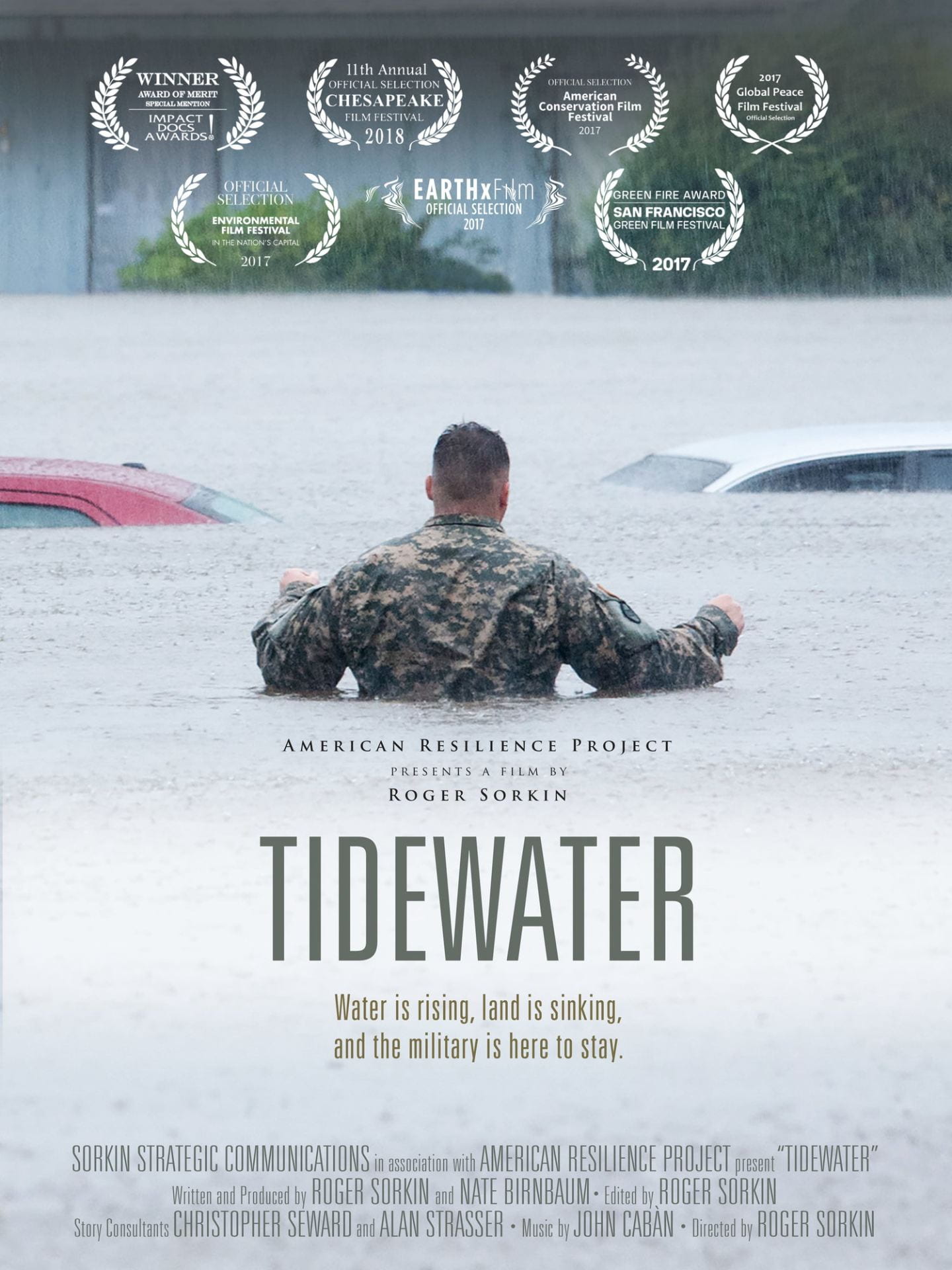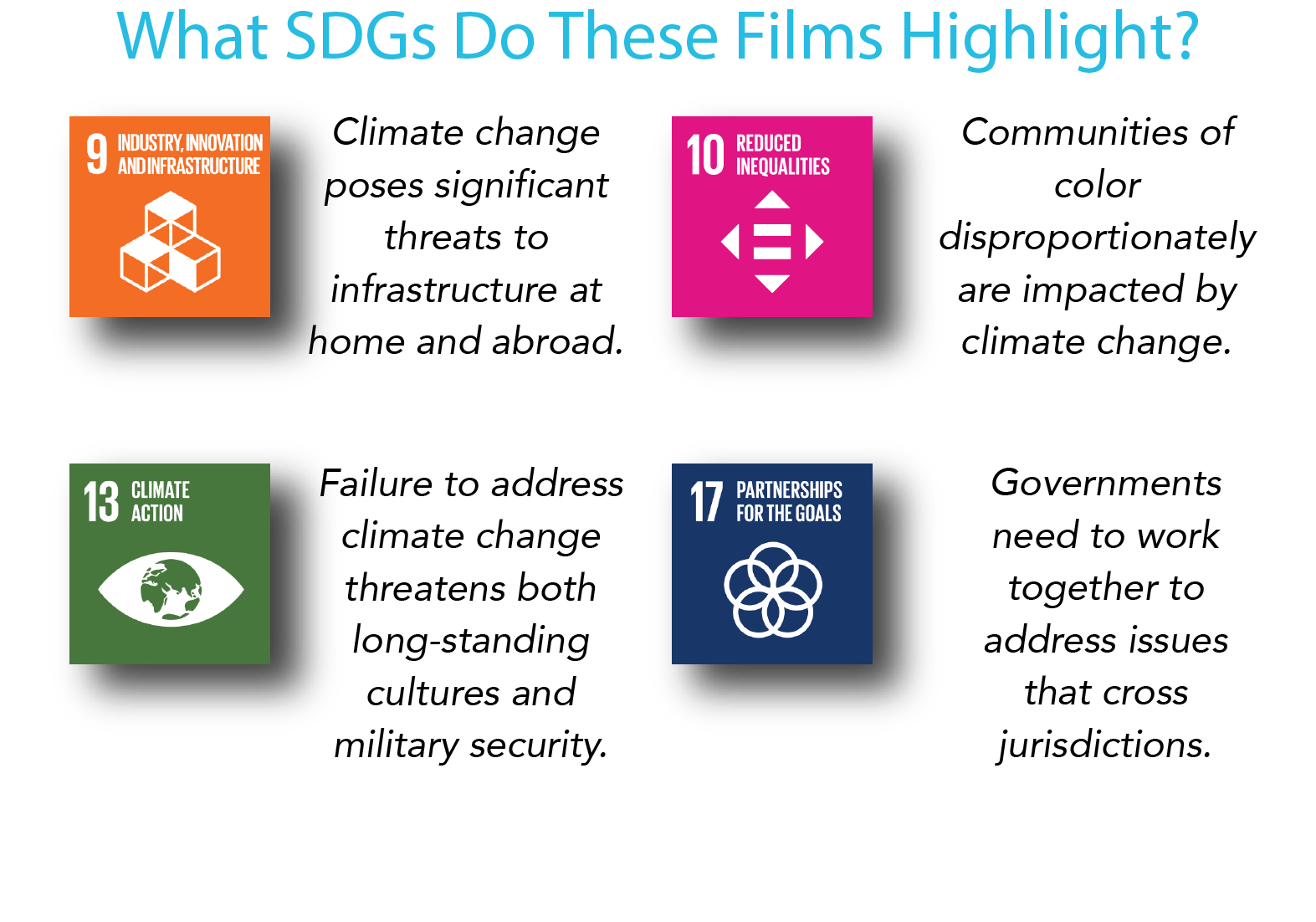Tidewater / Facing the Mountain
Wednesday, February 23, 2022 @ 7PM (EST)
Screened Online


Tidewater, Roger Sorkin (2017, U.S., 27 min.) + Facing the Mountain, Vaibhav Kaul & Ross Harrison (2016, India, 21 min.)
+ post-film discussion
The story of climate change and its impacts on human civilizations is a story about water. Whether droughts and desertification, flooding from storms and strengthened hurricanes, or sea level rise — climate impacts ultimately come back to changes in our relationships with water. In this twin screening, we will examine two examples of the intersection of water and climate change and discuss how Penn State’s researchers are working to understand and address these issues.
Roger Sorkin’s Tidewater takes us to Hampton Roads, Virginia, home to the largest naval base in the world and the largest constellation of American military installations anywhere. Yet this same vital area for national security is also one of the areas of the country most vulnerable to climate change. Sea level rise already is leading to sunshine flooding of vital roads that lead to military bases and through communities, both rich and poor. Floods are isolating homes and churches and challenging local community members about how best to respond. But people are also getting proactive and recognizing that the time for action is now, as they try to work on issues that transcend any political boundaries. j
Vaibhav Kaul and Ross Harrison’s Facing the Mountain takes us halfway around the world, high in the Himalayas. There you can find India’s Kendernath Hindu temple, a spiritual destination to which thousands have migrated every year for centuries. But in 2013, a monstrous flood spurred by changes in the monsoons caused by climate change led to devastation for parts of the community. Told firsthand from the recollections of eyewitnesses and from the perspective of the pilgrims who continue to come back, the film is ultimately a tale of resilience in the face of adversity, even as it serves as a warning about the coming threats climate change will place on deep cultural roots globally.
Following the screening, we held a post-film discussion moderated by Lara Fowler, who holds a joint appointment between Penn State Law and the Penn State Institutes of Energy and the Environment. Joining her for the panel were Christopher Scott, Maurice K. Goddard Chair of Forestry and Environmental Conservation; Caitlin Grady, Assistant Professor of Civil and Environmental Engineering; and Peter Stempel, Associate Professor of Landscape Architecture. (Speaker bios for panel here)
(Shown in partnership with the Penn State Water Council and Water Docs Where You Live)
The film is beautifully shot and relentlessly understated about a big problem that won’t soon go away.
